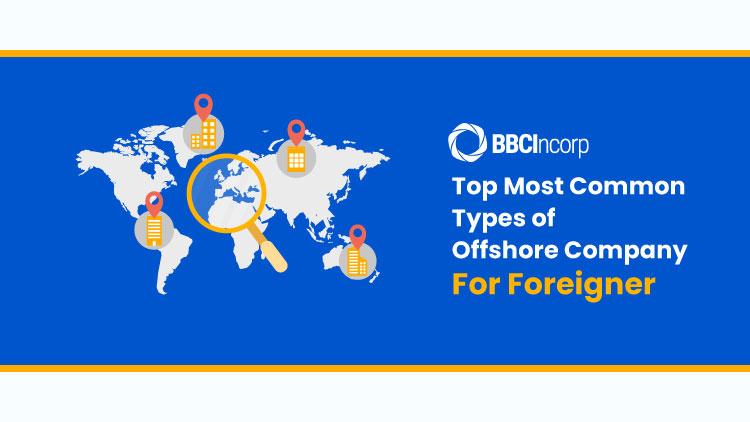
Table of Contents
International Business Company (IBC) or Business Company (BC)
An International Business Corporation (IBC) is a type of business entity often used in offshore jurisdictions for conducting international business activities. IBCs are typically designed to provide various advantages, including tax benefits and financial privacy, making them attractive for businesses engaged in global trade and investment.
In certain locations, an IBC may also be referred to as a Business Company (BC). For instance, in Seychelles, it is known as a Seychelles IBC, while in the British Virgin Islands, it is called a BC.
These types of companies can potentially benefit from special tax advantages when they engage in business activities outside of the jurisdiction where they are incorporated. As an example, a BVI business company could enjoy complete tax exemption for income generated outside of BVI.
However, if these activities occur within that jurisdiction, they won’t receive any special tax treatment.
Advantages
- Tax exemption: International Business Companies remain exempt from local market-related taxes, including stamp duty and other local corporate tax regulations, as long as they stay out of the local market.
- Multi-currency account: IBCs offer the flexibility of maintaining accounts in a wide range of currencies. This allows you to preserve the value of your wealth and shield it from significant currency fluctuations in the global market.
- Privacy and confidentiality: IBCs provide a high level of confidentiality and privacy for your financial affairs. This means that details about your company’s ownership, financial transactions, and assets are kept discreet and secure.
Disadvantages
There is a restriction on the business activities that IBC can conduct. Specifically, it is prohibited from engaging in the following activities unless it obtains the necessary licenses as authorized by relevant enactments:
- Providing banking or investment services to third parties;
- Offering gambling, betting, or casino services;
- Supplying insurance or reinsurance services; and
- Providing insurance services to third parties, among others.
IBCs for cryptocurrency in SVG
IBCs are the ideal match for cryptocurrency ventures in SVG.
But what benefits do they bring and how can you successfully establish one on your own? Find the answer in our article.
International company (IC)
An “International Company (IC)” is a specific business structure used in offshore locations for international business activities. These entities are popular due to its potential tax benefits and privacy safeguards, making them appealing to individuals and businesses involved in global commerce.
International Companies serve various purposes, such as safeguarding assets, managing intellectual property, and facilitating international trade. Some examples of these entities include the Samoa IC and RAK IC.
Advantages
- Tax exemption: ICs are exempt from various taxes, including withholding taxes, corporation taxes, import-export taxes, and income taxes. For example, RAK ICs enjoy tax-free status.
- Simple annual maintenance: ICs have straightforward annual maintenance requirements. For instance, Samoa ICs are not obligated to file annual reports or submit financial statements.
- Confidential: ICs ensure the privacy of shareholders and directors, as their names remain undisclosed to the public. Additionally, it is illegal to disclose other IC-related information.
- No minimum capital: ICs do not need to maintain a minimum capital amount. In jurisdictions like Samoa and RAK, the authorized share capital can be as low as US$1. This flexibility makes it accessible for various businesses.
Disadvantages
ICs are restricted from engaging in certain types of businesses. For example, they cannot operate as insurance or reinsurance companies, insurance agents, brokers, or managers.
Additionally, conducting business in the pharmaceutical, casino (gambling), or pornography industries is prohibited.
International Limited Liability Company (LLC)
An international Limited Liability Company (LLC) is a type of offshore business entity that combines features of both a limited corporation and a partnership. One key advantage of this structure is that its owners enjoy limited liability.
Some common examples of countries where international LLCs are often established include Anguilla, Belize, Delaware, and Panama.
Advantages
- Enhanced asset protection: An offshore LLC offers substantial asset protection advantages. Due to its foreign location, creditors may encounter limitations in accessing the company’s assets in various situations. This can provide a safeguard against potential legal actions.
- Limited liability: LLC members enjoy limited liability, meaning they are only responsible for the amount of their invested share in the company. In the absence of a legal agreement, you, as an LLC member, are not personally liable for the company’s debts or liabilities.
- Ease of incorporation:Some countries allow foreign investors to establish an LLC online with a streamlined incorporation procedure. This helps reduce the time and complexities associated with launching an LLC in a new market, thereby facilitating international expansion for businesses.
- Tax-exempt: In addition to its asset protection benefits, an LLC established offshore also presents opportunities for effective tax optimization. For instance, an Anguilla LLC is exempted from estate tax, income tax, corporate tax, and capital gains tax for income generated outside of Anguilla.
Disadvantages
- High compliance costs: Maintaining compliance with international laws and regulations often requires additional resources and expenses, including legal and consulting fees. Additionally, International LLCs often face increased administrative costs due to the need for various permits, licenses, and reporting requirements in multiple jurisdictions.
- Restricted transfer of profits: Transferring profits earned in foreign countries back to the LLC’s home country can be subject to restrictions and taxes, making it challenging to access funds generated overseas.
- Complex regulatory compliance: International LLCs often face complex regulatory requirements in multiple jurisdictions. Staying compliant with tax laws, reporting requirements, and business regulations in different countries can be challenging and time-consuming.
Private Limited Company (Pte Ltd)
A Private Limited Company (Pte Ltd) is a legal business entity where the ownership is restricted to a limited number of shareholders, often with a cap on the maximum number of shareholders. These shareholders are typically not liable for the company’s debts beyond their investment in the company.
Additionally, a Private Limited Company typically has restrictions on the public trading of its shares, which means that shares cannot be freely bought or sold on public stock exchanges. This provides a level of privacy and control for the company’s owners.
Advantages
- Capital raising: Private Limited Companies have the flexibility to raise capital by issuing shares to new investors or by borrowing funds from banks and financial institutions. This makes it easier to secure financing for business expansion and growth.
- Perpetual existence: Unlike sole proprietorships and partnerships, a Private Limited Company has perpetual existence. Its life is not dependent on the life of its shareholders, and it can continue to operate even if shareholders change or pass away.
- Credibility and trust: Having “Private Limited” as part of the company name often conveys a sense of stability and professionalism. As an example, a UK Private Limited Company can enhance your reputation and credibility when dealing with customers, suppliers, and partners.
Disadvantages
- Disclosure requirement: A private limited company is often required to disclose certain financial and operational information to regulatory authorities and, in some cases, to the public. This reduced privacy can be a disadvantage for business owners who prefer to keep sensitive information confidential.
- Complex compliance and reporting: Private Limited Companies are often subject to strict regulatory requirements, including financial reporting and compliance with company laws. Meeting these obligations can be time-consuming and costly, particularly for small businesses with limited resources.
Limited Liability Partnership (LLP)
A Limited Liability Partnership (LLP) is a unique business structure that combines aspects of both a limited company and a traditional partnership.
This type of entity is commonly chosen by professionals engaged in high-risk industries seeking a business structure that offers benefits such as limited liability protection, organizational flexibility, and transparent tax treatment.
Advantages
- Perpetual existence: Any changes in partners do not affect the LLP’s ongoing existence.
- Simple annual compliance: LLPs are exempt from appointing a company secretary, holding annual general meetings, and complying with certain filing obligations, such as tax reports.
- Asset protection: LLPs have a distinct legal structure that shields members’ assets from business liabilities.
- Various business activities: This type of business can engage in various business activities, including property ownership, rental, leasing, and staff hiring.
- Unlimited partners: There is no maximum limit to the number of partners an LLP can have, provided all eligibility requirements are met.
Disadvantages
- Limited fundraising options: LLPs are prohibited from raising funds by offering shares to the general public, which can restrict their access to capital.
- Potential for conflict: In some cases, individual partners may make business agreements on behalf of the partnership without obtaining consent from all other partners. This can potentially result in disputes and disagreements among the partners during the operation of the firm.
Have a business vision in mind?
Let’s turn your idea into reality with BBCIncorp. We provide capable services that simplify
the process of launching, managing, and growing your offshore company.
Explore our offshore company formation service or get in touch with our support team via service@bbcincorp.com for prompt support today!
Free ebook New to offshore business landscapes?
All the essential information you need is right here.

Disclaimer: While BBCIncorp strives to make the information on this website as timely and accurate as possible, the information itself is for reference purposes only. You should not substitute the information provided in this article for competent legal advice. Feel free to contact BBCIncorp’s customer services for advice on your specific cases.
Industry News & Insights
Get helpful tips and info from our newsletter!
Stay in the know and be empowered with our strategic how-tos, resources, and guidelines.





